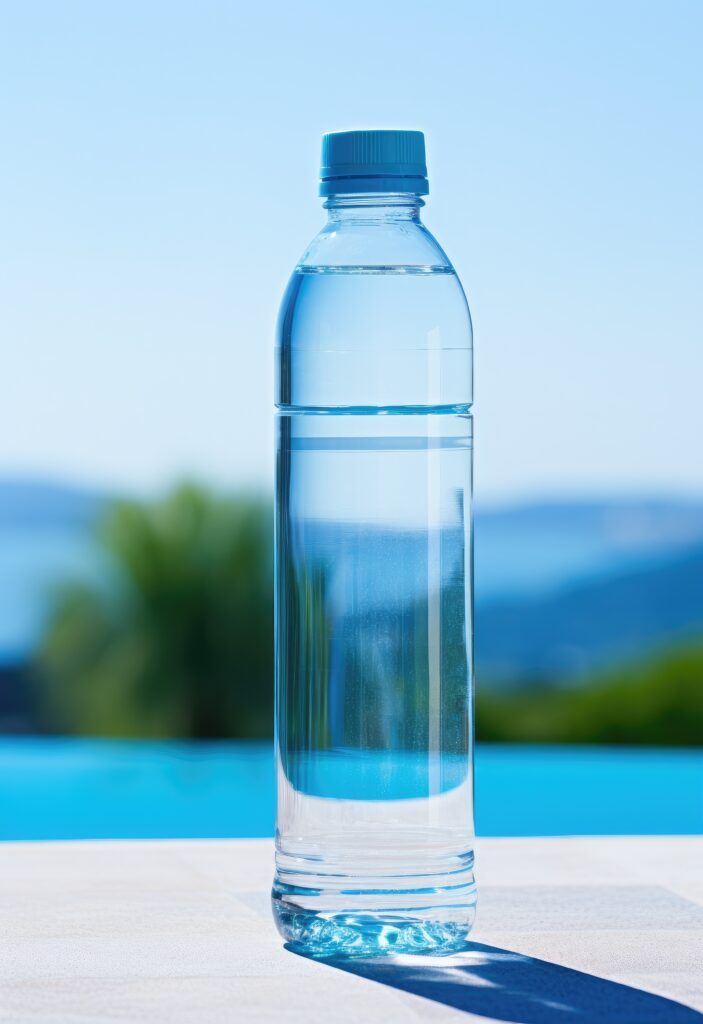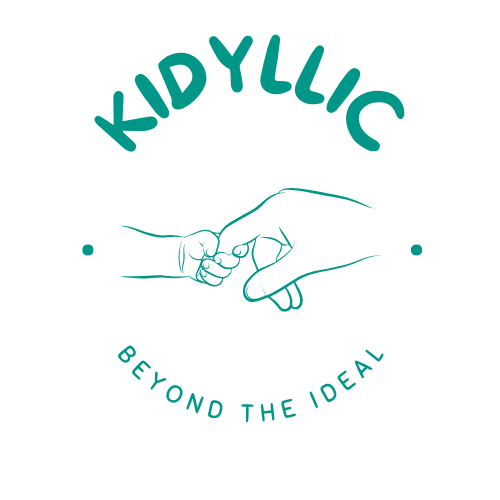
Table of Contents
As parents, we all want the best for our little ones, especially when it comes to their health and well-being. One of the most common yet overlooked questions new parents face is: What kind of water should I give my baby?
I remember when my first child started transitioning from breast milk to solid foods, and I suddenly realized I had no idea whether tap water was safe or if I needed something special. Like many parents, I turned to Google and was met with a flood of conflicting information. To save you the confusion, this guide will break down everything you need to know about baby water—why it matters, what to look for, and how to make the best choice for your child’s health.
Why Does Your Baby Need Special Water?
Understanding Infants’ Unique Hydration Needs
Babies have fragile digestive systems that are still growing. Unlike adults, their kidneys are not yet fully mature, meaning they struggle to process high levels of minerals and contaminants found in some types of water. Additionally, their intestines are more permeable, making them more susceptible to absorbing harmful substances that could disrupt their early growth.
Studies from pediatric health experts emphasize that overloading an infant’s system with excessive sodium or fluoride can have long-term effects on their kidney function and overall hydration balance. This is why choosing the right type of water is critical to ensuring their safety and healthy development. Many parents opt for baby water because it provides a consistent and controlled level of purity, ensuring their child receives safe hydration without unnecessary risks.
Baby Water vs. Tap Water: What’s the Difference?
Many parents assume that filtered or boiled tap water is sufficient, but the truth is, tap water can contain varying levels of minerals, fluoride, and even traces of heavy metals, depending on where you live. In some cases, municipal water treatment processes may add chlorine or other disinfectants that, while safe for adults, can be irritating to an infant’s sensitive system.
Additionally, factors such as old plumbing pipes in homes can leach lead into tap water, a serious concern for infants’ neurological development. While adults can tolerate these impurities, they may be too harsh for a baby’s developing body, making a safer alternative essential. This is why many parents opt for baby water, which is specifically designed to meet the safety standards required for infant consumption, ensuring that their child’s hydration is both safe and beneficial.
The Risks of Unfiltered or Untreated Water for Babies
Contaminants such as lead, chlorine, and bacteria can be present in household tap water. These impurities can come from multiple sources, including industrial waste, outdated plumbing systems, and agricultural runoff. The Centers for Disease Control and Prevention, says that a high nitrate levels in water can generate a state called blue baby syndrome, which affects oxygen levels in a baby’s blood.
Additionally, prolonged exposure to even trace amounts of serious metals like lead has been linked to cognitive and developmental delays in children. Parents should be particularly cautious if they live in older homes with lead pipes or in areas where water quality is frequently under advisement by public health agencies. Investing in water filtration or opting for baby-specific bottled water can be a crucial step in ensuring an infant’s safety. Many experts recommend baby water as a reliable alternative, as it undergoes stringent purification processes to remove contaminants and is specifically designed for infants’ delicate needs.
Key Factors in Choosing the Best Baby Water
Low Mineral Content: Why Does It Matter?
Infant kidneys are not yet capable of processing high levels of minerals like sodium, sulfate, and fluoride. Because their renal system is still developing, excessive mineral intake can lead to dehydration, an increased risk of kidney stones, or metabolic imbalances. The American Academy of Pediatrics (AAP) advises picking water with less than 200 mg/L of dissolved minerals to prevent excessive strain on your baby’s kidneys.
Additionally, high levels of fluoride in drinking water have been linked to dental fluorosis in infants, which can cause permanent discoloration of developing teeth. Opting for low-mineral water ensures that your baby remains hydrated without overwhelming their delicate system. Choosing baby water that meets these standards is an easy way to ensure your child gets the safest and purest hydration possible.
Nitrate-Free and Contaminant-Free Water: A Must for Safety
Nitrates are one of the biggest concerns when it comes to water for infants. High nitrate levels, often found in well water, have been linked to methemoglobinemia (also known as blue baby syndrome), a situation that decreases the blood’s ability to carry oxygen. This can conduct to severe health complications, particularly for infants under six months old.
As mentioned by the Environmental Protection Agency (EPA), even low levels of nitrates in drinking water can pose a risk to infants, as their digestive systems convert nitrates into nitrites, which interfere with oxygen transport in the blood. Additionally, agricultural runoff and industrial pollution can contribute to nitrate contamination, making it crucial for parents to test their water sources regularly.
Opting for baby water that is certified nitrate-free ensures your baby is safe from these risks and provides peace of mind for concerned parents. Parents who live in agricultural regions should be especially cautious, as nitrate contamination in groundwater is more common in these areas, making baby water an even more critical choice.
pH Levels and Their Impact on Baby’s Health
A baby’s digestive system is sensitive to pH imbalances. Most pediatricians recommend choosing water with a pH level between 6.5 and 8.5, as extreme acidity or alkalinity can affect digestion and nutrient absorption. A well-balanced pH supports healthy gut bacteria, which play an important role in digestion and immunity.
Studies indicate that water with an imbalanced pH can lead to mild digestive discomfort, including acid reflux or colic-like symptoms in infants. Additionally, an appropriate pH level in drinking water helps in the optimal absorption of essential nutrients like calcium and magnesium, which are critical for bone development in babies. Ensuring that your child drinks baby water with a balanced pH can support their overall digestive comfort and nutrient uptake.
Baby Water and Formula Preparation: What You Need to Know
Can You Use Baby Water for Formula Mixing?
Yes! In fact, using baby water for formula preparation ensures your baby gets clean, safe hydration while avoiding potential contaminants that might be present in regular tap water. Many pediatricians recommend using water specifically designed for infants, as it is free from excess fluoride and nitrates, which can be dangerous in big quantities.
Additionally, using baby water can help maintain the right balance of essential minerals, ensuring that the formula’s nutritional integrity is preserved. Some parents also prefer baby water because it reduces the risk of gastrointestinal distress, which can sometimes be triggered by impure water sources. Opting for a trusted brand guarantees consistency in water quality, giving parents peace of mind with every bottle preparation.
Moreover, choosing baby water eliminates the need for additional water treatments, making it a convenient option for occupied parents who want a hassle-free solution for their baby’s hydration needs.
Does Baby Water Need to Be Boiled?
Most pediatricians advise boiling tap water before using it for formula, as it helps eliminate potential bacteria, heavy metals, and chemical residues that might still be present. However, baby water is usually pre-treated and does not require boiling, as it undergoes rigorous purification processes such as reverse osmosis or distillation.
Some brands even add essential minerals back into the water to support infant hydration without overloading their developing kidneys. Always check the label for instructions, as some brands recommend boiling for added safety, particularly if the water has been opened for a prolonged period or stored in less-than-ideal conditions. Parents looking for a simple, worry-free option often choose baby water, as it eliminates concerns about impurities and provides a consistent level of quality for their little one’s hydration.
How to Store Baby Water Safely
Once opened, store baby water in a cool, dry place and use it within 24 hours. If refrigerating, ensure it is sealed properly to prevent contamination. Bypass exposing the bottle to direct sunlight or intense temperatures, as this can impact the water’s purity and safety. If your baby water comes in a plastic container, make sure it is BPA-free to stop any possible leaching of harmful chemicals.
Additionally, always pour water into a sterilized container before using it for formula preparation to maintain optimal hygiene standards. Using baby water that is stored correctly ensures that it remains free from bacterial growth and maintains its intended purity for infant consumption.
Best Baby Water Brands in 2025
Top-Rated Options for Safe Hydration
Some of the most recommended brands for baby water in 2025 include:
- Gerber Pure Water (fluoride-free, distilled)
- Nestlé Pure Life Baby Water (low in minerals, safe for formula)
- Evian Natural Spring Water (balanced pH, gentle for infants)
What to Look for on the Label
When choosing baby water, check for: ✅ « Distilled » or « Purified » to ensure the removal of harmful bacteria and heavy metals. ✅ « Nitrate-Free » certification, as even small amounts of nitrates can be dangerous for infants. ✅ « Low Fluoride » or « Fluoride-Free » to avoid the risk of dental fluorosis, which can affect developing teeth. ✅ « pH Balanced » (6.5 – 8.5) for optimal digestion and nutrient absorption. ✅ « BPA-Free Packaging » to prevent exposure to potentially harmful plastic chemicals. ✅ « Certified for Infant Use » by regulatory bodies to ensure it meets safety standards for newborns.
Comparing Prices and Availability of Baby Water Brands
Baby water is available at most supermarkets, but prices can vary depending on the brand, region, and store. On average, expect to pay $1.50 to $3 per gallon, though premium brands with added minerals or eco-friendly packaging may be priced higher. Some organic-certified or specially sourced waters might also command a premium. Bulk purchasing online can help reduce costs, especially when subscribing to regular deliveries, ensuring a steady supply while taking advantage of discounts offered by retailers. Additionally, checking for promotions or seasonal sales can further help in securing affordable baby water options without compromising on quality.
FAQs – Everything Parents Should Know About Baby Water
Is Baby Water Really Necessary?
If your tap water is high in fluoride or nitrates, baby water is a safer alternative. However, if you have access to well-filtered, tested tap water, boiling it may be enough.
Can I Give My Baby Distilled or Purified Water?
Yes! Distilled and purified water are both safe for babies, as they remove contaminants and excess minerals. Just ensure the brand you choose is certified for infant use.
How Much Water Should a Baby Drink Daily?
For babies under 6 months, stick to breast milk or formula only. After 6 months, pediatricians recommend 2-4 ounces of water per day, gradually increasing as they start solid foods.
Conclusion
As parents, making the right choice for our baby’s health is always a top priority. Choosing baby water ensures your little one gets safe, pure hydration, free from contaminants and harmful minerals. Whether you’re mixing formula or introducing water for the first time, this guide should help you feel confident in your decision.
💡 Have questions or personal experiences to share? Drop a comment below and let’s discuss!
Discover more at Kidyllic.com
